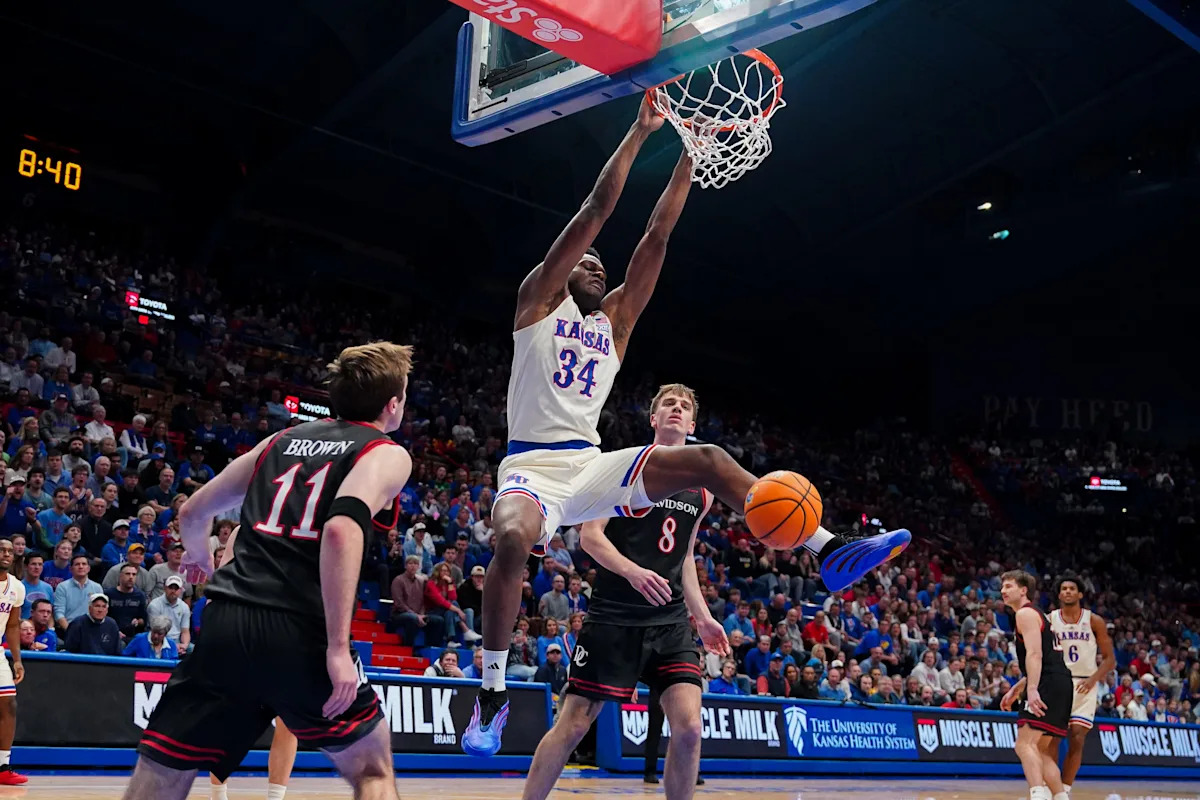You know what horse racing really needs? This whole “Triple Crown” thing is so 20th Century — we should be talking “Quintuple Crown” by now, but let’s start with “Quadruple Crown.”
Golf and tennis should both be well beyond four majors/Grand Slam events apiece, too. Waste Management Phoenix Open and BNP Paribas Open, anyone? And look, considering how big of a deal the Super Bowl is, would it be too much to ask to try to get two of those in every year?
Said no one, ever. Will be said by no one, ever.
But hey, let’s take the best sporting event in America and expand it despite no discernible benefit for the tournament itself, with some financial benefit to a small group of people calling the shots, in the face of overwhelming opposition from the people who care about it. The NCAA men’s basketball tournament found perfection in 1985 at 64 teams, yet there’s been this need to mess with it, and now it might actually get messed up.
But that’s college sports leaders for you, counting on their customers to have a passion so limitless for the product, it can be mangled to no end. The guess here is the Division I Board of Directors votes Thursday to expand from 68 teams to 76 — which means the NCAA women’s basketball tournament, a surging powerhouse in its own right, also will be saddled with eight teams that don’t belong in the field.
It could be 72. Any added teams would be a mistake. A big mistake. A devastating mistake? I can’t pretend to know that. It would be disingenuous to claim certainty about overall interest in March Madness diminishing — but then, disingenuous defines most of this conversation.
Every time SEC commissioner Greg Sankey or anyone else on the side of expansion mentions how Division I has increased by nearly 100 teams since 1985 while the tournament has stayed about the same, they are gaslighting. Those teams simply inflated the low-major leagues that compete for a single bid every year.
Those conference tournaments are tremendous theater and mean all of Division I essentially has a “play-in” opportunity as part of March Madness. Everyone’s in this tournament, really. But the expansion folks, in particular the ones representing the interest of the power conferences, just have to have 17-15 Florida State and 17-15 Ohio State in the field.
So they say, hey, look, American pro leagues have expanded their postseasons over the years, so why shouldn’t we? As if the greed of pro sports owners is something worth emulating. As if Major League Baseball is clearly better off now with 12 teams in its postseason. The sport was in awfully good shape from 1969-93 with four teams in the playoffs, and I’m not saying that’s why, but I am saying expanding the postseason has not strengthened the overall product.
The examples at the start of this column were imperfect comparisons as well, but the point is some things in sports actually are perfect and should be left alone. I can’t think of a better example than the NCAA Tournament. And if the expansionists prevail, the customer is being disregarded at alarming levels here.
“Listen to the fans enough and pretty soon you’ll be sitting with them” is a grand old saying in sports, but it’s OK to pull your heads out of your, um, committee meetings every once in a while and get a sense for what people in the real world think.
No regard for all the media types shaking their fists at the idea this week? Fine — though everyone should read CBS Sports’ Matt Norlander’s mathematical dismantling of the alleged benefits of expansion. But maybe the people whose interest makes possible the 22-year, $19.6 billion TV you’re enjoying should have some say? Do you offer a suggestion box?
This goes for the coaches and athletic directors as well, too many of whom have been on this idea for too long. Coaches, including a lot of successful ones who don’t need the help, have talked themselves into expansion as a way to help a profession that gets judged on earning bids or not. But mediocrity can always be redefined. Also, again: Please consider the three weeks that put your sport above all others in this country and the people who make that possible.
Hardcore hoops lovers hate expansion. If you know any, just ask them. Rob Dauster, founder of college basketball site thefieldof68.com, has a large following of them and posted a poll question Wednesday on X asking yay or nay on expansion. As of this writing, it was at more than 10,000 responses, with 94 percent against. Support as high as 6 percent is actually a bit of an upset.
And then there are the casuals, who make possible a Houston-Florida title game in April that peaked at 21.1 million viewers for a sport that comes in a bit under 1 million on average in the regular season. They’re pretty important. The national tradition of playing hooky from work and school on the first Thursday and Friday of the tourney — you know, the round of 64, when it actually starts — is a great one.
But going all day Tuesday and Wednesday is flirting with overkill and asking too much, even of the devout slackers. And then there’s the bracket. If you want disingenuous, consider how college athletics leaders, who not long ago decried gambling, have embraced its financial benefits, yet want to pooh-pooh the idea that an unwieldy bracket could be a problem. Becoming less user-friendly seems unwise at this point in human history.
Hopefully, enough smart people on the Division I Board of Directors prevail and this doesn’t happen. If it does, the NCAA tournaments will carry on and we’ll still care about them. But they’ll be worse, not better, and the threat of more expansion will continue to loom. For as nice as it is to consider a team like 2024 Indiana State making the field, we’re more likely to see the Big Ten and SEC combine to cram 24 teams into it in a given year.
And Tuesday and Wednesday of that first week are still going to be a hard sell. Right now, we basically tolerate them. There you go, board members, a slogan to accompany the big announcement. The NCAA Tournament Field of 76: It Just Means More to Tolerate.
(Photo: Steph Chambers / Getty Images)


























